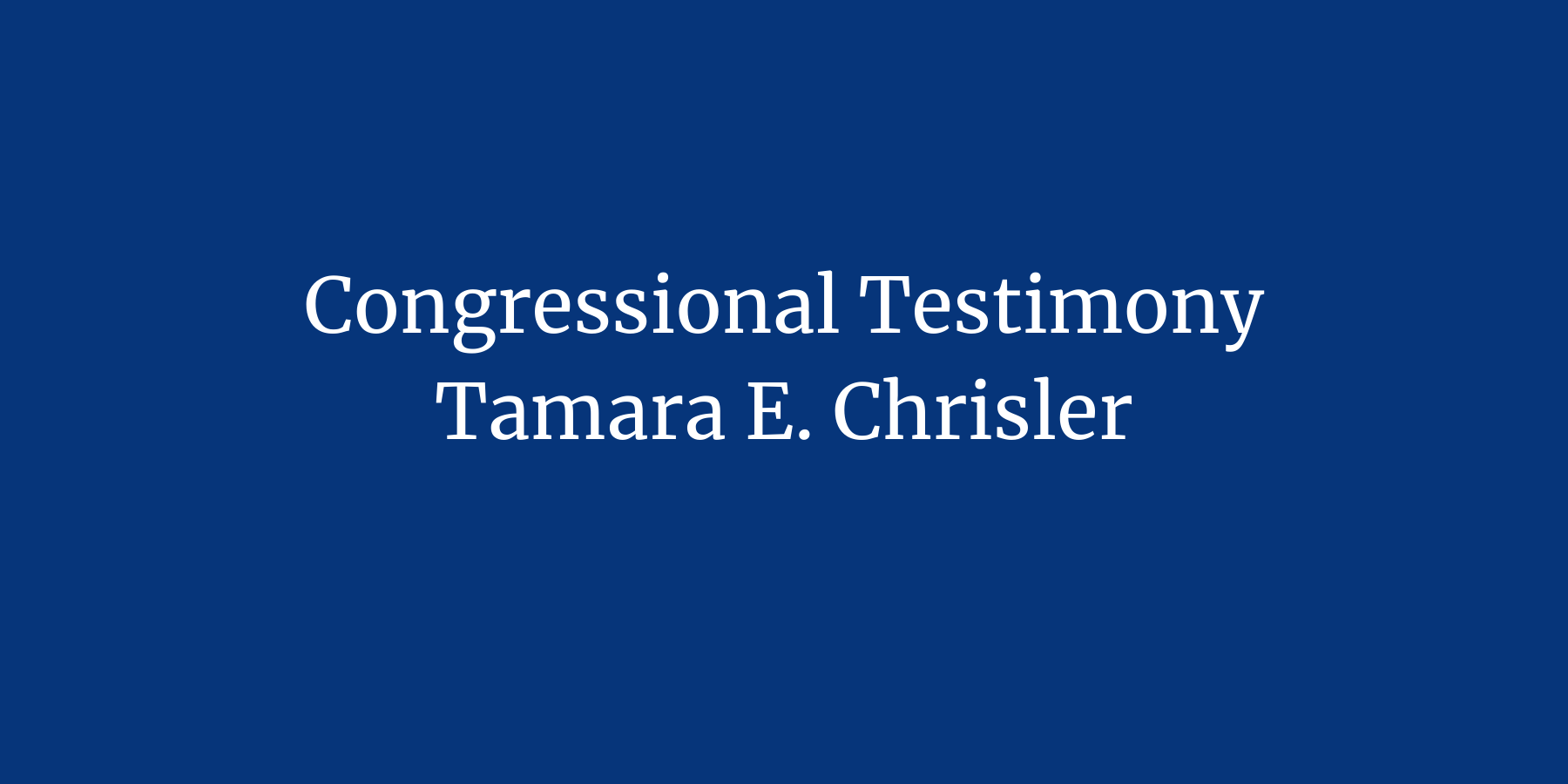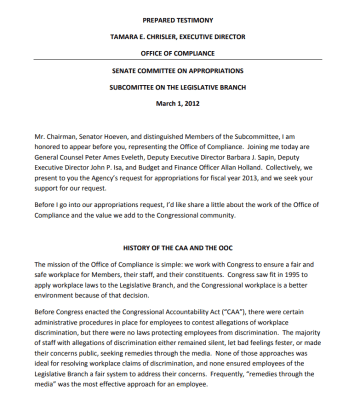Mr. Chairman, Senator Hoeven, and distinguished Members of the Subcommittee, I am honored to appear before you, representing the Office of Compliance. Joining me today are General Counsel Peter Ames Eveleth, Deputy Executive Director Barbara J. Sapin, Deputy Executive Director John P. Isa, and Budget and Finance Officer Allan Holland. Collectively, we present to you the Agency’s request for appropriations for fiscal year 2013, and we seek your support for our request.
Before I go into our appropriations request, I’d like share a little about the work of the Office of Compliance and the value we add to the Congressional community.
HISTORY OF THE CAA AND THE OOC
The mission of the Office of Compliance is simple: we work with Congress to ensure a fair and safe workplace for Members, their staff, and their constituents. Congress saw fit in 1995 to apply workplace laws to the Legislative Branch, and the Congressional workplace is a better environment because of that decision.
Before Congress enacted the Congressional Accountability Act (“CAA”), there were certain administrative procedures in place for employees to contest allegations of workplace discrimination, but there were no laws protecting employees from discrimination. The majority of staff with allegations of discrimination either remained silent, let bad feelings fester, or made their concerns public, seeking remedies through the media. None of those approaches was ideal for resolving workplace claims of discrimination, and none ensured employees of the Legislative Branch a fair system to address their concerns. Frequently, “remedies through the media” was the most effective approach for an employee. Prior to 1995 and the enactment of the CAA, Occupational Safety and Health Act protections did not apply to the Legislative Branch, and, unlike with allegations of discrimination, there were no internal controls to ensure the application of OSH protections. Consequently, many employees – including our electricians, landscapers, and utility tunnel workers – worked without the protections that apply in the private sector and Executive Branch to help prevent harmful, and sometimes deadly, results.

